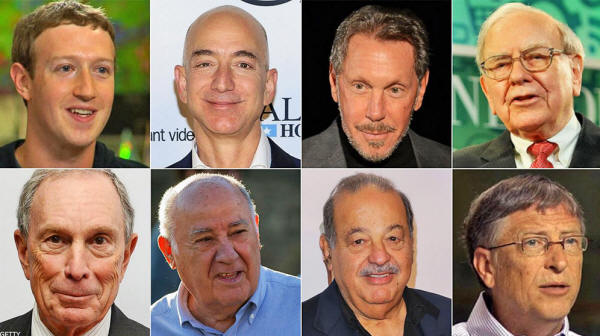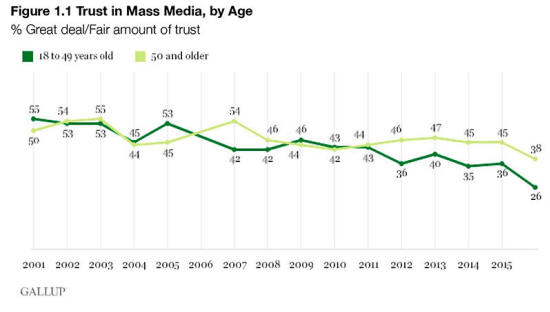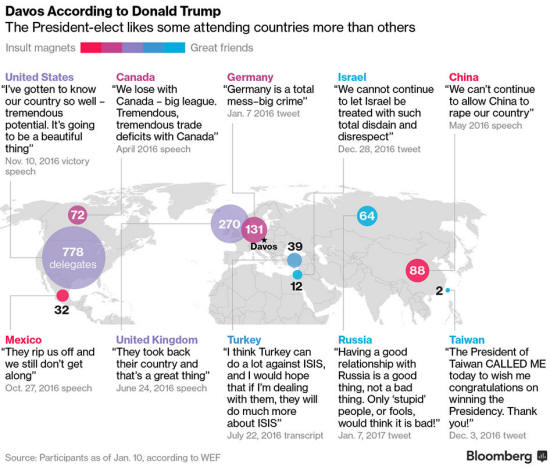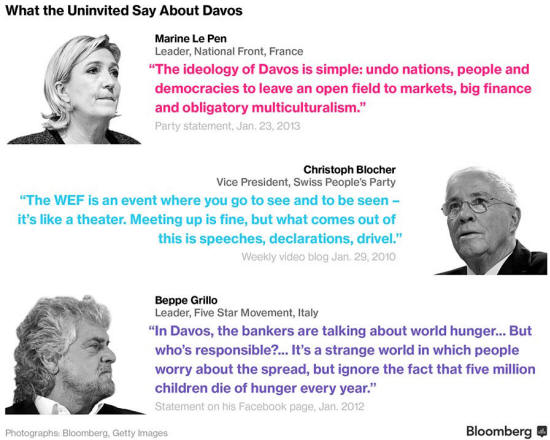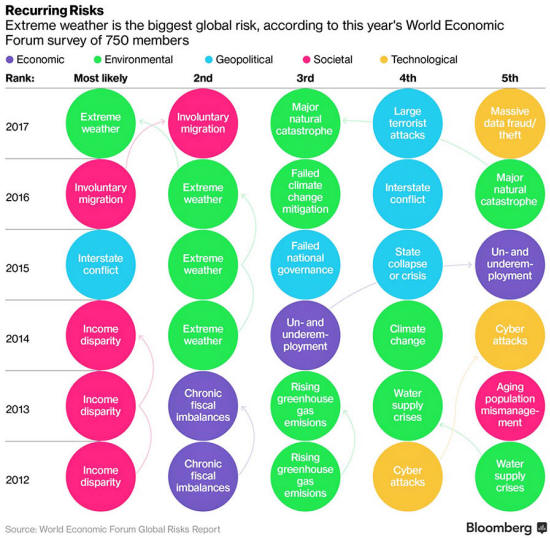|
by Tyler Durden from ZeroHedge Website
Last night we reported that while snacking on $40 hotdogs, the global financial, political and entertainment elite will be "struggling for answers" and cowering in "silent fear" as the world's most powerful people face a force they have never encountered before - the rising tide of populism, first demonstrated by the "unexpected" Brexit vote and subsequently by the "shocking" election of Trump.
As Moises Naim of the Carnegie Endowment for International Peace put it,
Adding to the farcical nature of this year's Davos shindig is that, while one of the main topics of discussion is "populism" and social and wealth inequality, overnight a new Oxfam study (An Economy for the 99%) revealed that not only 8 people own the same amount of wealth as (the poorer) half of the world, but that since 2015, the richest 1% has owned more wealth than the rest of the planet.
It is expected that many of the "eight people" highlighted by Oxfam will be present at Davos:
And while in years past Davos was eager to whistle past the graveyard, and discuss in broad terms the state of the world, ignoring its own role in the unprecedented wealth divide, this year's Davos conference which is officially starting in just a few hours, is facing more immediate problems which it can no longer afford to ignore.
One of these is that trust in governments, companies, and thus the executives present at the Forum, has plunged over the past year as ballots from the United States to Britain to the Philippines have rocked political establishments and scandals hit business.
Trust in the media itself, meant to be an objective and impartial observer of the Davos boondoggle, yet sadly captured, has likewise crashed to record lows across all age groups.
As such, one major problem facing Davos, is one of loss of credibility, as the majority of people now believe the economic and political system is failing them, according to the annual Edelman Trust Barometer, released on Monday ahead of the Jan. 17-20 World Economic Forum.
A simpler way of putting it:
And it's not just the poor who have lost faith:
As Reuters puts it, the 3,000 business, political and academic leaders meeting in the Swiss Alps this week find themselves increasingly out of step with many voters and populist leaders around the world who distrust elites.
And this time the increasingly angry world is closely watching.
Governments and the media are now trusted by only 41 and 43 percent of people respectively, with confidence in news outlets down particularly sharply after a year in which "post-truth" become the Oxford Dictionaries Word of the Year.
Trust in business was slightly higher, at 52 percent, but it too has declined amid scandals, including Volkswagen's rigged diesel emission tests and Samsung Electronics' fire-prone smartphones.
The credibility of chief executives has fallen in every country surveyed, reaching a low of 18 percent in Japan, while the German figure was 28 percent and the U.S. 38 percent.
Trust in governments fell in 14 of the countries surveyed, with South Africa, where Davos regular President Jacob Zuma has faced persistent corruption allegations, ranked bottom with just 15 percent support.
Making matters worse, according to a PwC survey released at Davos, even the global business elite is starting to lose confidence in the benefits of globalization, i.e. the very bread and butter of the people present at the world's biggest echo chamber symposium.
Which leads us to the second core problem:
As Bloomberg puts it, while,
So much for Davos learning from its mistakes, or truly seeking to reach out to its sworn nemesis:
Still, these so-called "upstarts" will loom over the proceedings, Bloomberg notes.
Meanwhile, Europe's populist leaders, for their part, have,
And yet, despite the clear and present danger from global populism what does Davos believe is the biggest threat facing the world in 2017?
Adding to the surreal nature of this year's meeting, no economic risks have even made it into the top 5 "risk" categories for the second year in a row.
While we would be the first to acknowledge that no tangible change in the world can take place without these most important and influential decision-makers sitting down and tackling pressing global issues, what is clear is that the biggest problem facing Davos may also be the simplest, and most reflexive one:
Unfortunately, we see no reason why and how this could change.
|


